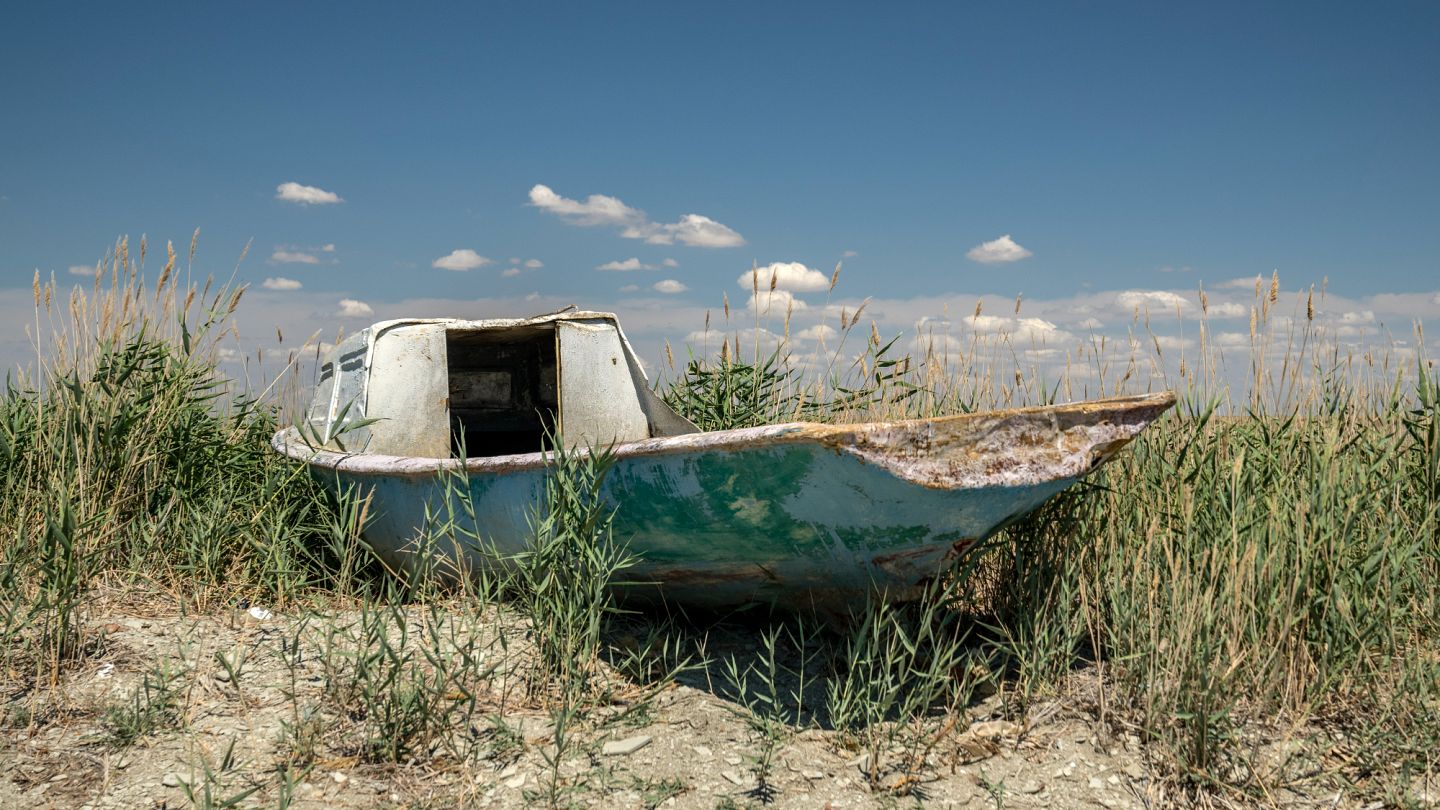Is the future Qosh Tepa Canal in Afghanistan the final nail in Aral Sea's coffin?
Afghanistan is building a 285-kilometre waterway at an accelerated pace to irrigate its drought-ridden northern regions. Central Asian states maintain that decisions regarding transboundary water use should be made collectively.
Afghanistan is rapidly constructing the Qosh Tepa Canal, a waterway meant to help irrigate more than 500,000 hectares of its arid northern regions, for which it will redirect 20–30% of the Amu Darya River flow.Besides Afghanistan, the Amu Darya flows through Tajikistan, Uzbekistan, and Turkmenistan, with the last two countries being downstream. The countries depend on the river to fuel their hydroelectric power plants and irrigate agricultural lands.Redirecting the river to the canal will devastate Central Asia’s water security, cutting Uzbekistan’s water supply by 15% and Turkmenistan’s by as much as 80%, as well as negatively affect employment and poverty levels, migration and cross-border conflicts.At the same time, authorities in the remaining two Central Asian states – Kazakhstan and Kyrgyzstan – seem to be less concerned with the issue because the Amu Darya does not pass through their territory.Experts, however, warn that if Uzbekistan and Turkmenistan receive less water from the Amu Darya, to mitigate losses, they may start taking more water from the Syr Darya River, of which they are upstream.“These changes in the water balance will inevitably affect our country. The flow from the Syr Darya River from Uzbekistan to Kazakhstan may reduce by 30-40%,” said Azamatkhan Amirtayev, the leader of Kazakhstan’s green party Baytaq.Together, the Amu Darya and Syr Darya rivers feed the ecologically devastated Aral Sea.“Qosh Tepa will finish off the Aral Sea basin, it will be the last nail in the coffin,” said Bulat Yessekin, founder and coordinator of the Central Asian Water Resources Management and Climate Change Platform.To preserve the ecosystem, he suggested that Central Asian states should share their energy and food resources with Afghanistan.“They’re building the canal to feed themselves. It’s our fault they don’t have water. We have the means to solve this problem, if only we take it seriously,” highlighted Yessekin.Other experts at the recent Water Security and Transboundary Water Use conference agreed that the construction of the Qosh Tepa Canal will undermine all the work on the restoration of the Aral Sea.Central Asia is already suffering from water shortage due to the changing climate and poor water management, and the new challenge may create irreversible damage to the countries’ ecosystems.Water regulationWater use in Central Asia is regulated by the 1992 agreement on transboundary water use and protection, a descendant of the Soviet-era Protocol 566. The countries also abide by the UN Convention on the Protection and Use of Transboundary Watercourses and International Lakes.“Central Asian countries have managed to maintain relatively cooperative and peaceful relations despite ongoing water quality and quantity issues,” states the UN World Water Development Report 2024.Afghanistan, however, is not part of these agreements, with the Taliban not being recognised by any international organisations or states.Despite that, Central Asian countries gradually improve relations with the regime. Kazakhstan and Kyrgyzstan removed the Taliban from the list of banned terrorist organisations, while Uzbekistan is actively building cooperation with its neighbour.“We are interested in a stable and fair distribution of water resources, taking into account the needs of ecosystems and the socio-economic development of regions,” said the Kazakh Ministry of Water Resources and Irrigation.Afghanistan demonstrated its readiness to discuss the issue of sharing water, noting that its people have the same right to use it as other countries.“We don’t see any problems in this regard. This is a very good opportunity for coordination and cooperation,” said Afghanistan’s Deputy Foreign Minister Mohammad Naeem Wardak. “If anyone has any problem, we are fully prepared to resolve it. The Qosh Tepa canal will not be to the detriment of anyone.”Kazakhstan believes that a platform already exists where these issues can be discussed.“Considering that in 2024 Kazakhstan assumed the chairmanship of the International Fund for Saving the Aral Sea (IFAS), the Ministry considers it appropriate to address regional water distribution issues, including Afghanistan, within the IFAS framework, pending the agreement of all member states,” the water resources ministry stated.All parties agree that Afghanistan has the right to take water from the Amu Darya but should do so in cooperation and agreement with its downstream neighbours. Kabul should consider modern water conservation technologies to prevent unnecessary water loss, and Central Asia can share its experts.


